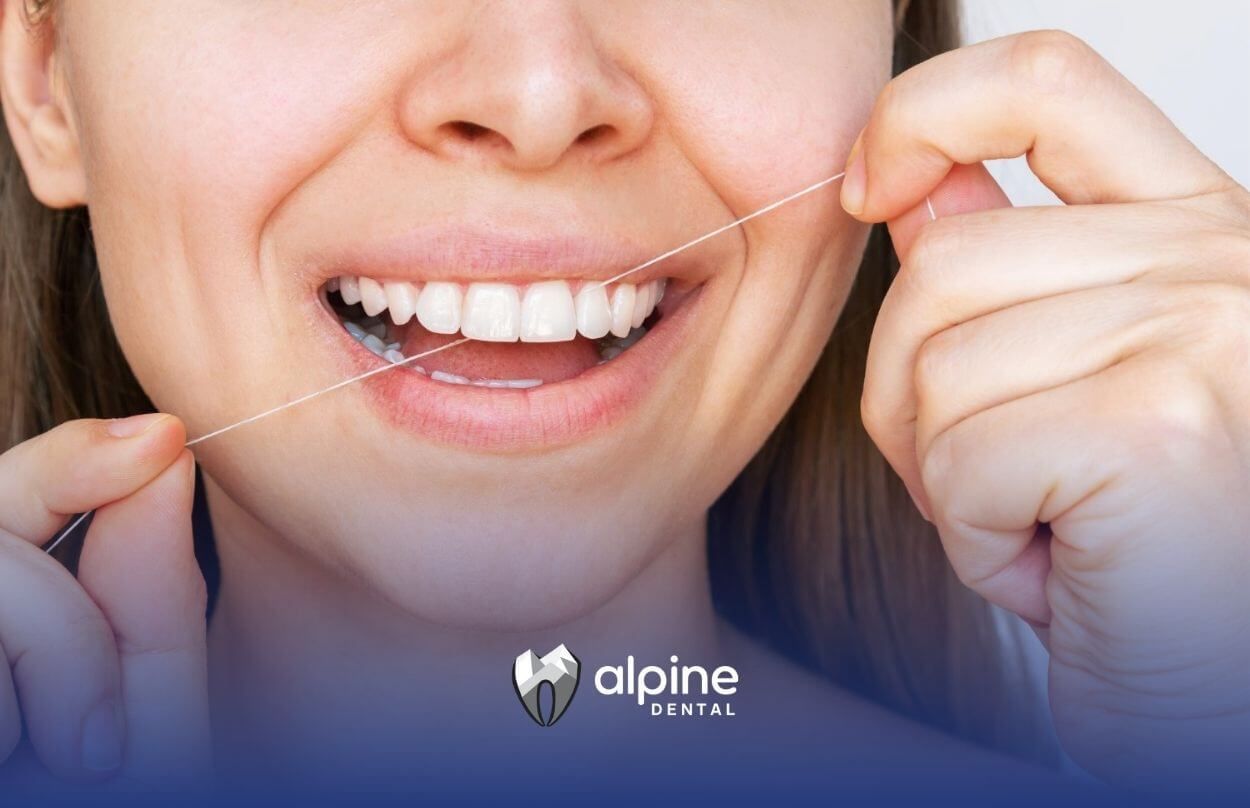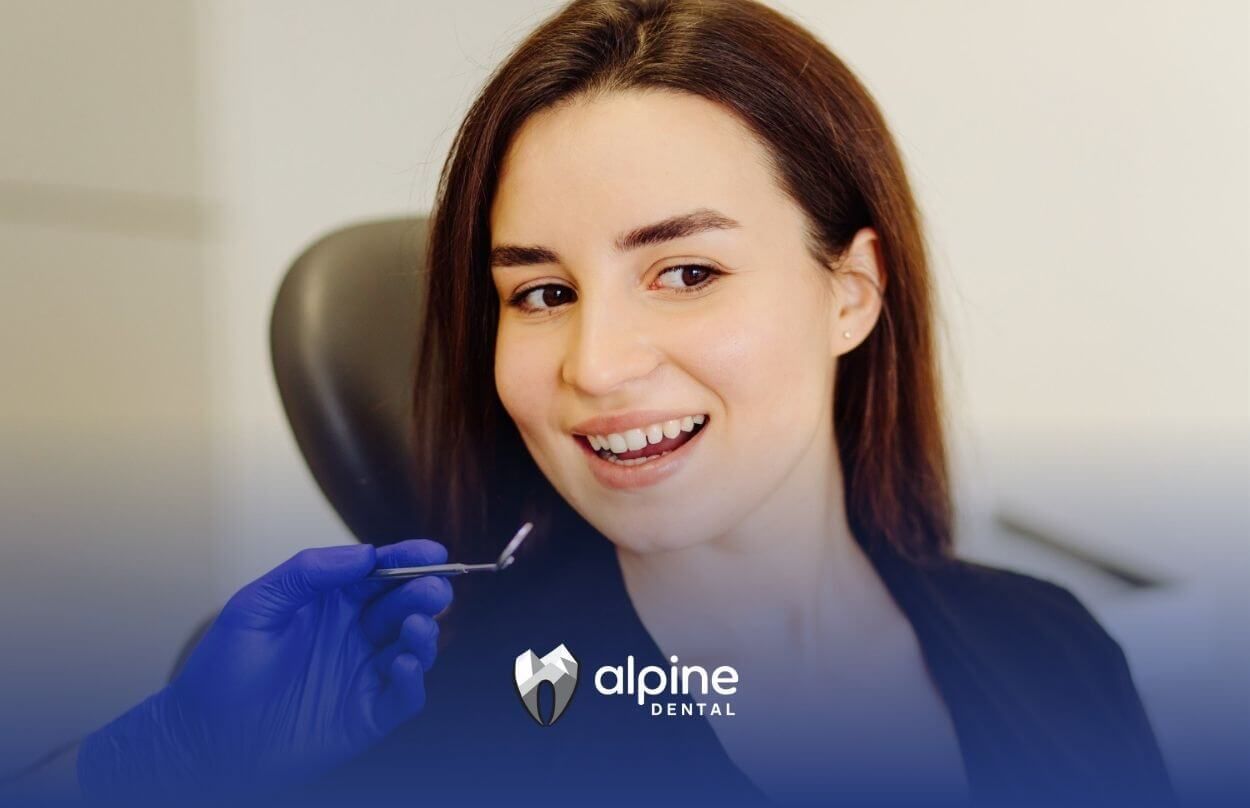Exploring the Different Types of Veneers: Pros, Cons & Prices Explained
When it comes to transforming your smile, dental veneers are one of the most popular and effective cosmetic treatments available. But did you know there are several types of veneers, each with unique materials, procedures, and costs? Understanding the different types of veneers and cost factors can help you make an informed decision that suits your dental needs and budget.
In this detailed guide, we’ll explore the main types of veneers, their advantages and disadvantages, the typical costs involved, and how Alpine Dental can help you achieve the smile you’ve always wanted with expert care and personalized treatment.
What Are Dental Veneers?
Dental veneers are thin, custom-made shells designed to cover the front surface of your teeth. They improve the appearance of teeth that are discolored, chipped, misaligned, or unevenly spaced. Veneers are bonded to your teeth to create a natural, attractive smile that can last for many years with proper care.
Why Are There Different Types of Veneers?
The variety in types of veneers exists because of differences in materials, application techniques, durability, aesthetics, and cost. Choosing the right type depends on your dental condition, aesthetic goals, budget, and lifestyle.
The Main Types of Veneers
1. Porcelain Veneers
Porcelain veneers, often called traditional veneers, are the most common and widely used type. They are thin ceramic shells crafted to fit over your teeth perfectly.
- Procedure: Requires removal of a small amount of
tooth enamel to make space for the veneer. Impressions are taken, and veneers are custom-made in a dental lab. The process usually takes two visits.
- Durability: Porcelain veneers are highly durable and can last 10 to 20 years or more with proper care.
- Aesthetics: They mimic the natural translucency of teeth and resist staining, providing a very natural and bright appearance.
- Cost: Typically ranges from $900 to $2,500 per tooth, depending on location and the dentist's expertise.
- Pros: Long-lasting, stain-resistant, natural look, customizable.
- Cons: More invasive due to enamel removal, higher cost.
2. Composite Veneers (Bonded Veneers)
Composite veneers are made from a tooth-colored resin applied directly to the teeth.
- Procedure: Can often be completed in a single visit without enamel removal or with minimal preparation.
- Durability: Less durable than porcelain, lasting about 5 to 10 years. More prone to staining and chipping but easy to repair.
- Aesthetics: Can look natural but may not match porcelain in translucency and color stability.
- Cost: More affordable, ranging from $250 to $1,500 per tooth.
- Pros: Cost-effective, quick application, minimally invasive.
- Cons: Less durable, prone to staining, requires more maintenance.
3. Dental Lumineers
Lumineers are a brand of ultra-thin porcelain veneers, about the thickness of a contact lens.
- Procedure: Minimal to no enamel removal is needed, making it a less invasive and pain-free process. Usually completed in two visits.
- Durability: Lumineers can last over 20 years.
- Aesthetics: They provide a bright smile but may appear slightly thicker or more translucent, sometimes showing the natural tooth color beneath.
- Cost: Generally between $800 and $2,200 per tooth.
- Pros: Minimally invasive, reversible, stain-resistant.
- Cons: Limited color options, possible issues with translucency, not suitable for all cases.
4. Zirconia Veneers
Zirconia veneers are made from a strong ceramic material known as zirconium oxide.
- Procedure: Similar to porcelain veneers, requiring some enamel removal and lab fabrication.
- Durability: Extremely strong and resistant to chipping and cracking, lasting many years.
- Aesthetics: Slightly less translucent than porcelain but very natural-looking and suitable for patients with bruxism (teeth grinding).
- Cost: Typically comparable to porcelain veneers, sometimes higher due to material strength.
- Pros: Very durable, resistant to wear, good for patients with heavy bite forces.
- Cons: Slightly less translucent, higher cost.
5. Palatal Veneers
Palatal veneers are less common and designed for the inside (palatal) surface of upper teeth, often made from gold, porcelain, or composite.
- Purpose: Used mainly to manage tooth wear and protect the inner surfaces.
- Pros: Protects against wear, customizable.
- Cons: Invasive, requires specialized expertise, not for cosmetic front teeth.
6. Snap-On Veneers (Non-Permanent Veneers)
Snap-on veneers are removable, temporary veneers made from acrylic or resin.
- Procedure: No tooth preparation needed; they snap over your existing teeth.
- Durability: Temporary solution, not meant for long-term use.
- Cost: Affordable, usually $300 to $1,200 for a full set.
- Pros: Non-invasive, affordable, immediate smile enhancement.
- Cons: Not permanent, less natural appearance, not suitable for major dental corrections.
Types of Veneers and Cost: What to Expect
- Durability: 10-20+ years
- Procedure: Moderate (enamel removal required)
- Aesthetics: Very natural, stain-resistant
- Durability: 20+ years
- Procedure: Minimal/no enamel removal
- Aesthetics: Natural but slightly translucent
- Durability: 5-10 years
- Procedure: Quick, minimal preparation
- Aesthetics: Good but less durable
- Durability: 15+ years
- Procedure: Moderate (enamel removal)
- Aesthetics: Durable, slightly less translucent
- Durability: Long-lasting
- Procedure: Specialized, invasive
- Purpose: Functional, not cosmetic
- Durability: Temporary
- Procedure: Non-invasive, removable
- Use: Cosmetic, short-term
How Long Do Different Types of Veneers Last?
- Porcelain and Lumineers: 10 to 20+ years with proper care.
- Composite Veneers: 5 to 10 years, more maintenance needed.
- Zirconia Veneers: 15+ years, highly durable.
- Snap-On Veneers: Temporary, months to a year.
How Alpine Dental Can Help You Choose and Get the Perfect Veneers
At Alpine Dental, serving Jackson, NJ, and Lakewood, NJ, we understand that choosing the right type of veneers is a personal and important decision. Our experienced cosmetic dentists provide:
- Comprehensive Smile Evaluation: We assess your oral health, aesthetic goals, and budget to recommend the best veneer type for you.
- Customized Treatment Plans: We take precise impressions of your teeth to create custom veneers.
- Expert Craftsmanship: Our skilled team ensures your veneers look natural and fit perfectly.
- Comfort and Care: We prioritize your comfort with gentle techniques and thorough aftercare instructions to ensure lasting results.
If you’re ready to enhance your smile with the right type of veneers, Alpine Dental is here to guide you every step of the way. Contact us today to schedule your consultation and discover the best veneer options tailored just for you.
Conclusion
Understanding the types of veneers and cost factors is essential for making the best choice for your smile makeover. From durable porcelain and zirconia veneers to affordable composite options and innovative Lumineers, there’s a veneer type suited for every need and budget.
If you want a natural-looking, long-lasting smile transformation, consulting with a trusted dental clinic like Alpine Dental in Jackson and Lakewood, NJ, can help you navigate your options confidently. Don’t wait to get the smile you deserve - reach out now to schedule your personalized veneer consultation and take the first step toward a radiant new smile.
Frequently Asked Questions (FAQs)
What type of veneers are the best?
The best type depends on your dental needs and goals. Porcelain and Emax veneers are highly durable and natural-looking, while composite veneers are more affordable but less durable.
Are there different types of veneer?
Yes, the main types include porcelain veneers, Lumineers, composite veneers, zirconia veneers, palatal veneers, and snap-on veneers.
Which type of veneers lasts longer?
Porcelain, Lumineers, and zirconia veneers typically last 10 to 20 years or more, while composite veneers last about 5 to 10 years.
What Are Emax Veneers?
Emax veneers are a type of all-ceramic veneer made from lithium disilicate glass-ceramic, known for their excellent strength and highly aesthetic, translucent appearance.
- Durability: Stronger than traditional porcelain but more translucent, providing a very natural look.
- Use: Ideal for front teeth where appearance is crucial.
- Cost: Similar to porcelain veneers, sometimes slightly higher due to material quality.
Which Is Better: Zirconia or Emax Veneers?
- Zirconia veneers are extremely strong and durable, suitable for patients with heavy bite forces or bruxism, but slightly less translucent.
- Emax veneers offer superior aesthetics with excellent translucency and natural appearance, ideal for front teeth but slightly less durable than zirconia.
The choice depends on your dental condition, aesthetic goals, and functional needs.




